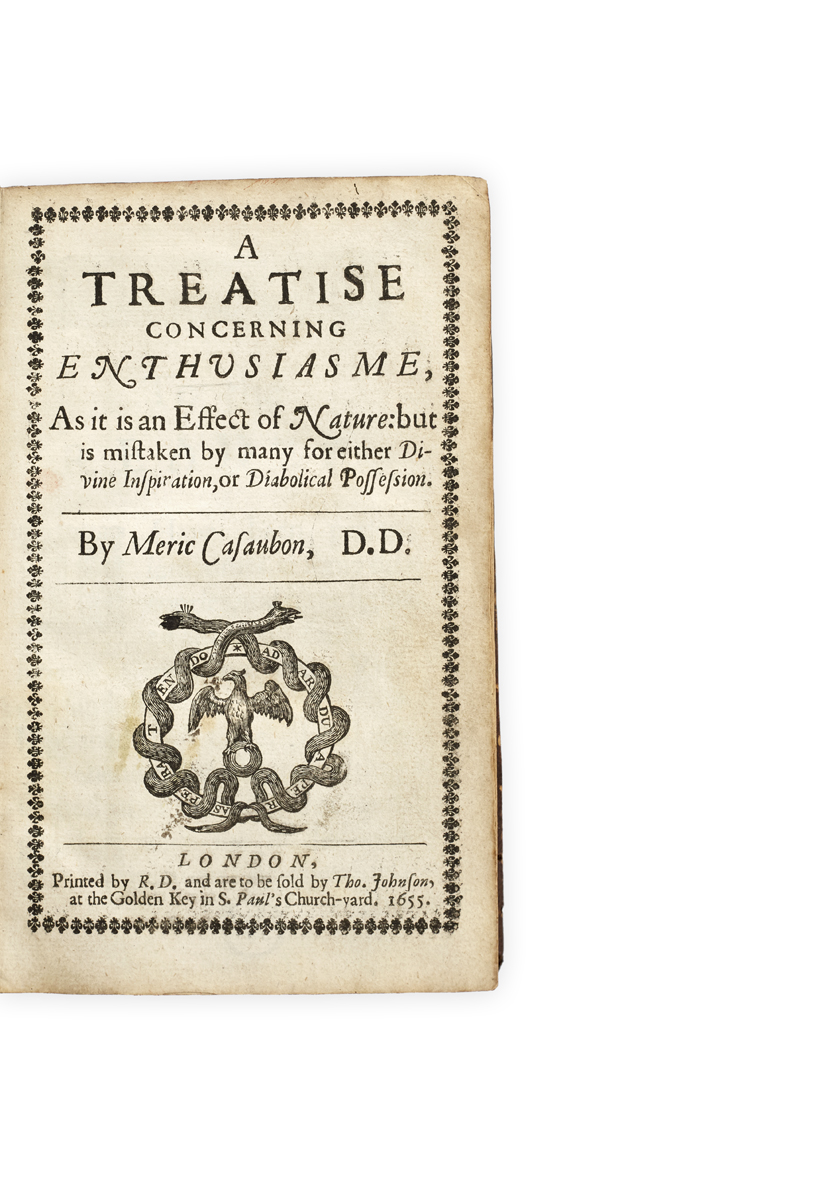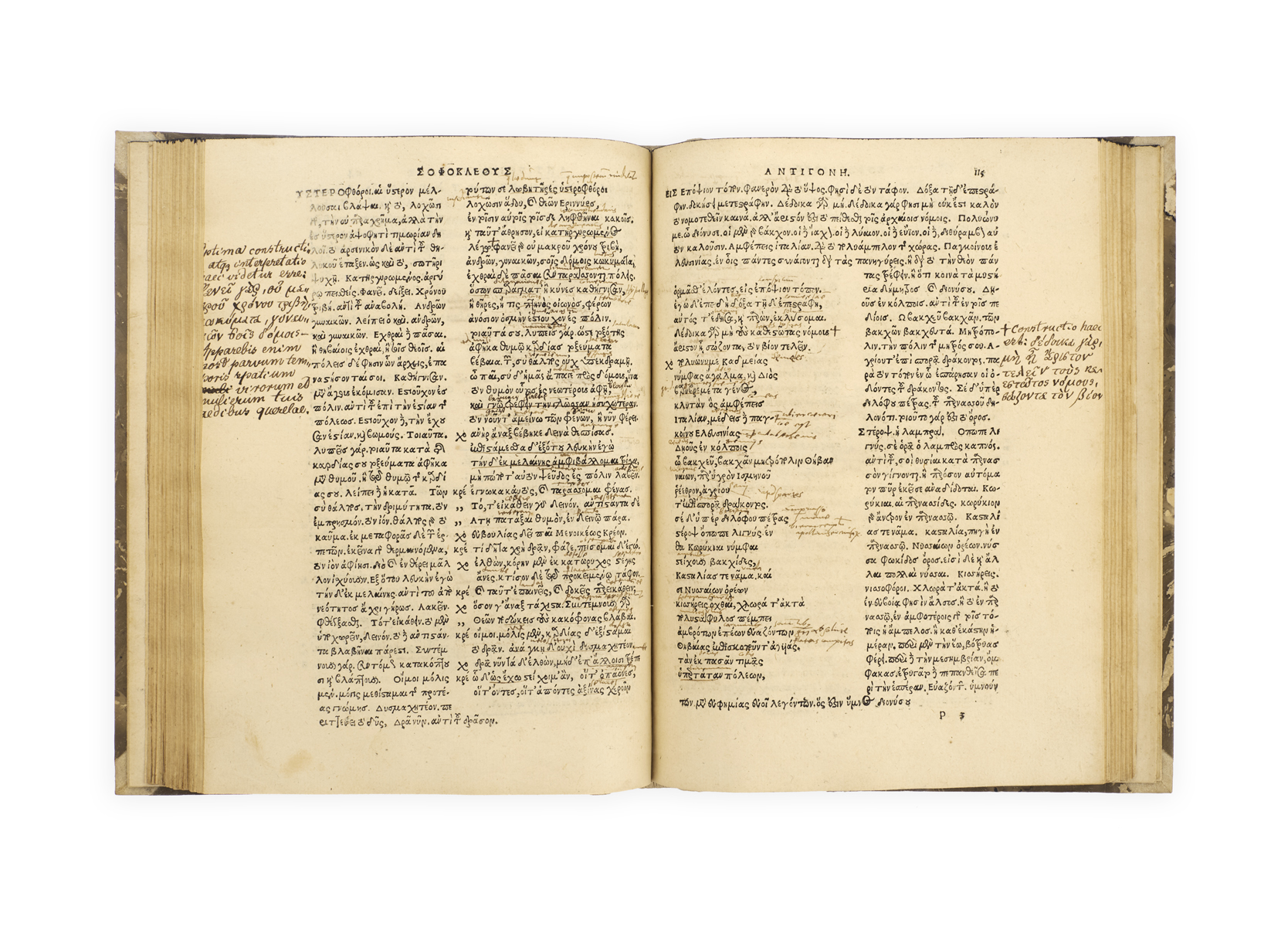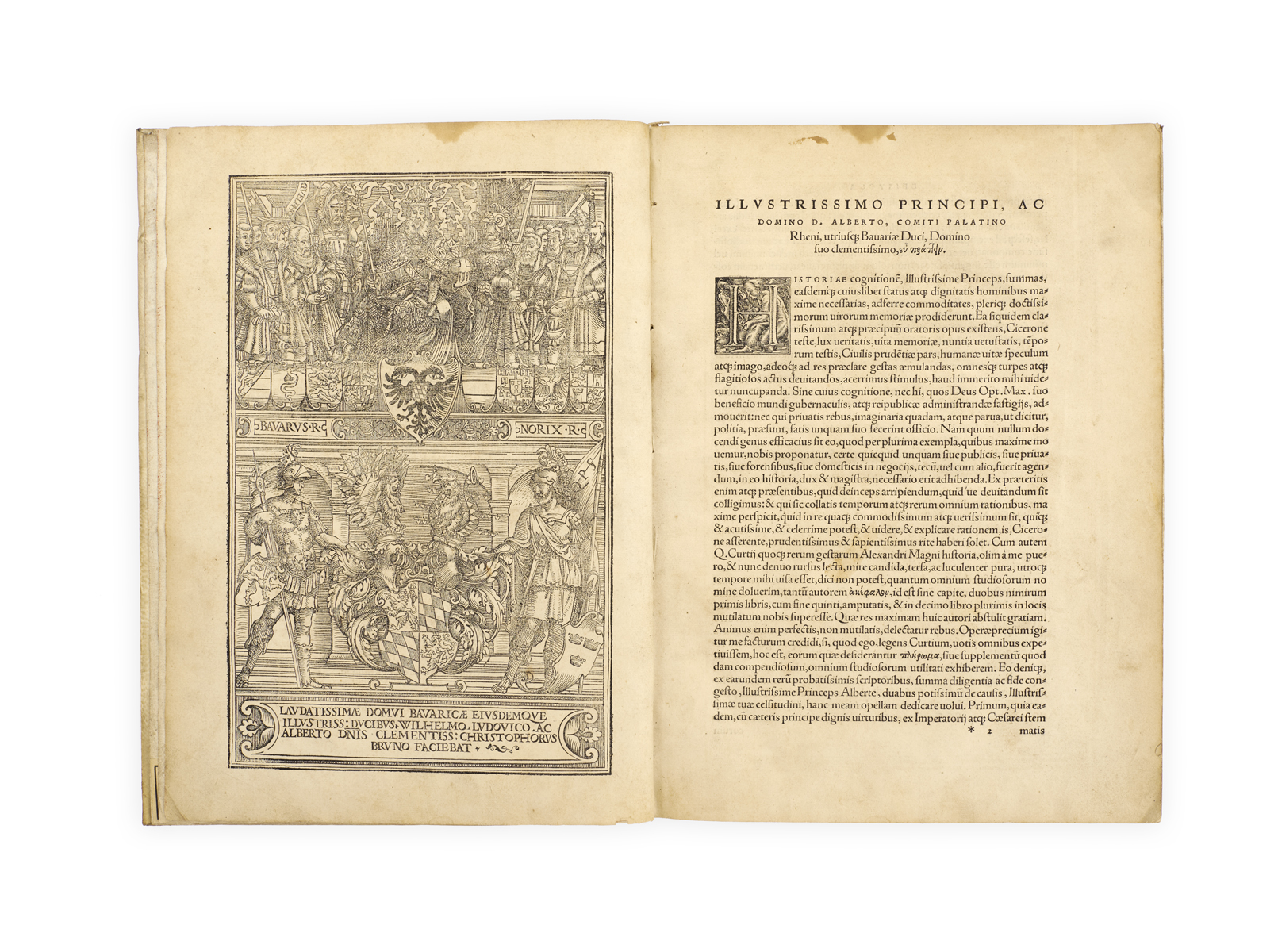
PIONEERING PSYCHIATRY
CASAUBON, Meric.
A Treatise concerning Enthusiasme, as it is an effect of nature but is mistaken by many for either divine inspiration, or diabolical possession.
London, R.D. for Thomas Johnson, 1655 [i.e. 1654].
8vo, [xxvi], 228; title-page engraving, engraved initials, head- and tailpieces; lightly toned, a few small marks, the occasional crease, but a very good copy, in contemporary sheep, sides filleted in blind, flat spine; upper joint cracked but holding firm, a little worn; small circular Selbourne Library stamp to verso of title and to foot of p. 51 (see below).

Added to your basket:
A Treatise concerning Enthusiasme, as it is an effect of nature but is mistaken by many for either divine inspiration, or diabolical possession.
First edition of the first separate treatise on ‘enthusiasm’, a pioneering work of psychiatry avant la lettre and one of the most ground-breaking publications in a very public controversy. Of all Casaubon’s books, this has been shown as the most directly linked to the publication of John Dee’s manuscript Spiritual Diaries, in which enterprise Casaubon was instrumental.
In the Treatise concerning enthusiasme for the first time Casaubon rejected any recourse to the supernatural in setting out a theory of mental states, showing ‘how various ‘Enthusiasmes’ … could arise from mental abnormalities without supernatural intervention or imposture’ (Hunter & McAlpine, Three Hundred Years of Psychiatry, pp. 143–7). Casaubon’s interest was directed to the most obviously dramatic forms of ‘enthusiasm’, but also and perhaps especially to the more understated forms of delusion. ‘This apparent paradox of “a sober kind of distraction” as Casaubon called it, has always been a major stumbling block in psychiatric systems and classifications … Casaubon realized that it touched on the fundamental question of whether insanity “was an error of imagination only, and not of understanding”, and wondered whether by natural means one faculty could be “depraved” without the other. This dichotomy between an “intellective” or “ratiocinative” and an “imaginative” faculty is still implied in the current psychiatric distinction of mental illness into “thought disorder” or schizophrenia and “affective disorder” or manic-depressive psychosis, and of course forms the basic tenet of the McNaughton Rules (1843) by which “a defect of reason, from disease of the mind” is the ultimate medico-legal test for the presence or absence of absolving insanity’ (ibid.).
It has been shown that Casaubon’s role in the publication of John Dee’s Spiritual diaries, which happened the year after the publication of this treatise, was strongly related to Casaubon’s own writings. The Dee diaries, intended to undermine the reputation both of Dee and of occultism in general, would in fact be functional in his project of attack on ‘enthusiastic and inspired religion’ (Anabaptism), ‘which he saw as the product of misunderstanding concerning the natural causes of “private revelations” … [this] attack has close parallels with some of his other controversial writings, and particularly his Treatise concerning Enthusiasme’ (Clucas, in Evans-Marr eds, Curiosity and Wonder from the Renaissance to the Enlightenment (2006), p. 132).
Provenance: from the library of Dr Hugh Selbourne (1906–73), whose diaries as a doctor in the 1960s were published as A Doctor’s Life (1989, 2009) by his son David, the political philosopher and historian of ideas.
ESTC R14401; USTC 3070041; Wing C812.

